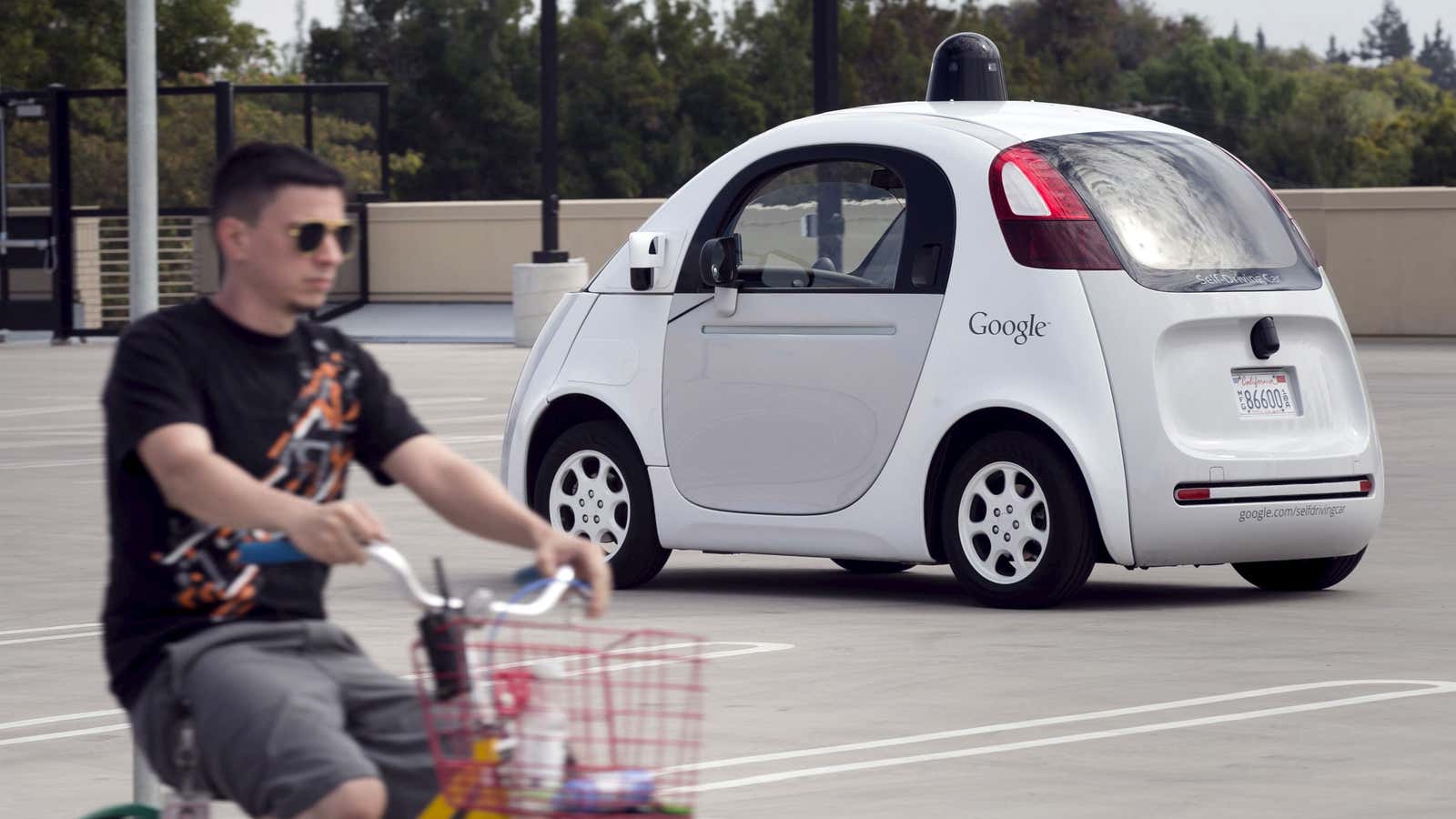There’s a new heavy hitter in ride-hailing. Google-owned Waze on Monday unveiled a carpooling service for commuters in California’s Bay Area. The pilot program is limited to about 25,000 employees of companies including Walmart and Adobe Systems, the Wall Street Journal reported. Waze will match riders with drivers already heading along similar routes during the morning and evening rush hours.
“For years, Waze has established a trusted community of drivers, with millions of Wazers helping each other beat traffic on the fastest routes,” the company wrote on its website. ”Since so many people are already using Waze to get to work, why not help a fellow commuter heading in the same direction?”
In its current form, Waze Carpool is less a land grab for Uber and Lyft’s business than that of smaller, explicitly commuting-focused ride startups such as Via. Waze Carpool is charging riders just $0.54 a mile, which is also what the IRS recommends companies reimburse their employees per mile for business-related travel. “Waze Carpool focuses on covering costs, not generating an income,” the company explains.
That’s an important distinction from most of the carpool-esque services introduced by Uber and Lyft, which are cheaper than their private-ride options but still structured so that drivers can expect to make a little extra cash. UberPool, for example, calculates fares for drivers based on time and distance. Via, a ride app that offers flat-rate trips in New York and Chicago, pays its drivers an hourly wage. The most comparable service Uber offers is UberCommute, which in the US is live in Chicago and reimburses drivers $0.54 a mile.
Waze Carpool’s $0.54 rate is also important from a regulatory standpoint. As Waze explains, car insurance policies in states including California typically cover “not for profit, share-the-expense carpooling.” By framing its operations that way, Waze Carpool may be able to avoid the scrutiny around insurance coverage that has at times sidelined Uber and Lyft.
A spokesperson for Waze said the app is “just a pilot” and “the company has not committed to any future plans.”
Of course, even if the initial pilot of Waze Carpool is limited, and Alphabet’s long-term plans for the service not fully developed, the big-picture implications should still be worrisome for other ride-hailing companies. Both Uber and Lyft have touted their commuter-friendly services. Lyft has long talked about providing affordable rides that reduce traffic and congestion. And Uber, born as ”everyone’s private driver,” has lately embraced a more democratic slogan: “transportation as reliable as running water.”
Waze Carpool is a clear play for that commuter market, and could easily broaden beyond it. Meanwhile, as all the major ride companies and automakers race to develop self-driving car technologies, Google’s driverless vehicles are already traversing the streets of Mountain View, California.
Put a platform like Waze Carpool and Google’s self-driving car capabilities together and it must be a scary vision—even for Uber.
